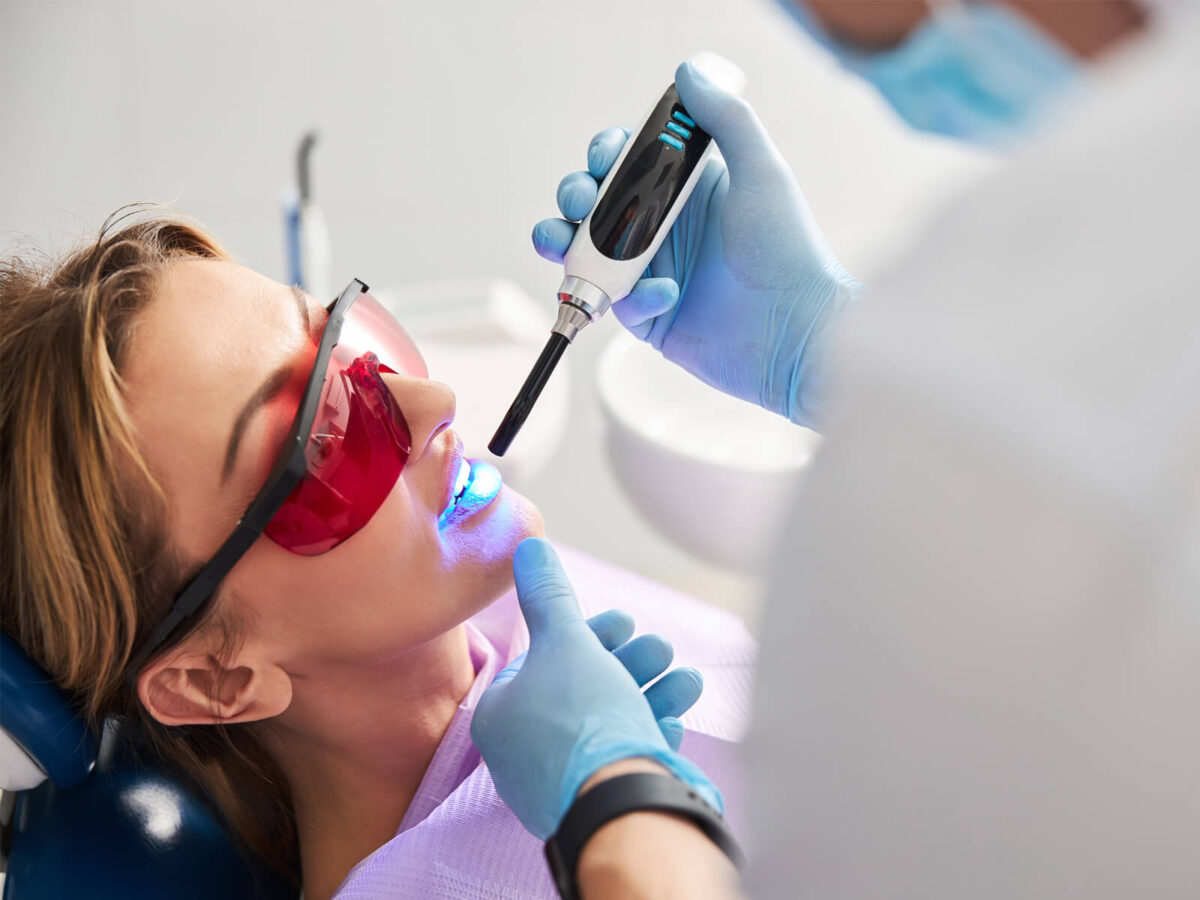Blog
Dental hygiene tips for healthy teeth & gums

What is a Glass Ionomer Sealant?
Dental sealants are crucial in preventing tooth decay by creating a protective barrier on the surfaces of teeth prone to cavities. Among the various types of sealants available, glass ionomer sealants have gained recognition for their unique features and versatile applications in dentistry. In this article, we will explore the composition, properties, advantages, and uses of glass ionomer sealants.
Understanding the Composition of Glass Ionomer Sealants:
Glass ionomer dental sealants are dental materials crafted from powdered glass and liquid acid. Typically, powdered fluoro aluminosilicate glass and liquid polyacrylic acid are used. When these components are combined, they undergo an acid-base or glass-polyalkenoate reaction, resulting in the formation of glass ionomer cement.
Specifications:
- Adhesion:
Glass ionomer dental sealants exhibit excellent adhesion to dental enamel. This characteristic allows for effective sealing of pits, fissures, and tooth surfaces, preventing the invasion of bacteria and acid.
- Fluoride Extraction:
Glass ionomer sealants release fluoride ions gradually over time. This fluoride release aids in remineralizing enamel, strengthening the tooth structure and providing additional protection against decay.
- Biocompatibility:
Due to their biocompatibility with dental tissues, the likelihood of adverse reactions or sensitivity is minimized. As a result, they are suitable for a wide range of patients, including children and individuals with dental sensitivity.
- Versatility:
Glass ionomer dental sealants are versatile, as they can be applied to occlusal surfaces, smooth surfaces, and surfaces with minimal enamel preparation.
- Translucency:
The clarity of glass ionomer sealants allows them to blend with the natural tooth color, offering aesthetic benefits while providing decay protection.
Applications of Glass Ionomer Sealants:
- Glass Ionomer Sealants:
Glass ionomer sealants are commonly used as pit and fissure sealants. When applied to the chewing surfaces of molars and premolars, these sealants create a protective layer that inhibits the accumulation of plaque and debris in deep grooves, reducing the risk of cavities.
- Caries Prevention:
Glass ionomer sealants effectively prevent caries (cavities) on smooth tooth surfaces. They establish a protective barrier against acids and bacteria, making the tooth less susceptible to decay.
- Protection for Primary Teeth:
Glass ionomer dental sealants can be applied to primary (baby) teeth. Their biocompatibility and fluoride-releasing properties are essential for maintaining the oral health of young patients.
- Orthodontic Applications:
Glass ionomer sealants can provide protection to teeth during orthodontic treatments. They offer an additional layer of defense against decay, especially in areas that may be challenging to clean with braces in place.
- Safeguarding Root Surfaces:
Glass ionomer sealants can shield vulnerable root surfaces from decay when they are exposed due to gum recession or other factors. This is particularly important for individuals with receding gums.
- Restorative Dentistry:
In cosmetic and restorative dentistry, glass ionomer sealants can be used for various purposes. They may serve as a liner or base beneath restorative materials, enhancing adhesion and promoting fluoride release over time, which helps preserve tooth structure.
- Geriatric Dentistry:
Glass ionomer sealants find applications in geriatric dentistry to meet the specific oral health needs of older individuals. Their biocompatibility and fluoride-releasing properties help prevent decay in aging teeth.
Advantages:
- Preventive Action:
Glass ionomer sealants play a vital role in preventing tooth decay by establishing a physical barrier that hinders the colonization of bacteria and acid attacks.
- Fluoride Release:
The continuous release of fluoride ions aids in remineralizing enamel, fortifying tooth structure, and reducing the risk of demineralization.
- Biocompatibility:
Glass ionomer dental sealants are well-tolerated by dental tissues, making them suitable for a wide range of patients, including children and those with sensitivities.
- Adhesion to Tooth Structure:
These sealants adhere exceptionally well to tooth enamel, resulting in a long-lasting seal capable of withstanding the mechanical stresses of chewing.
Conclusion:
Glass ionomer dental sealants are indispensable in both preventive and restorative dentistry, combining attributes such as adhesion, fluoride release, and biocompatibility. Their versatile applications make them valuable in various clinical scenarios, from cavity prevention in pediatric patients to safeguarding exposed root surfaces in the elderly.
Dentists can choose glass ionomer sealants based on the specific needs of patients and the nature of the dental issues being addressed. Incorporating these sealants into preventive dental care can contribute to the overall improvement of dental health and longevity, aligning with the broader objective of maintaining excellent oral health.
